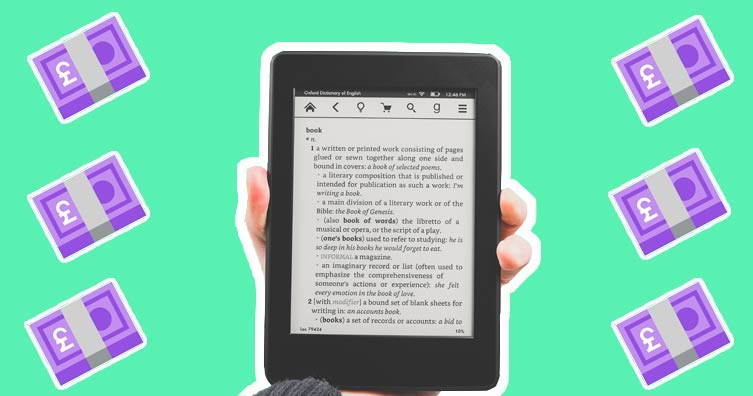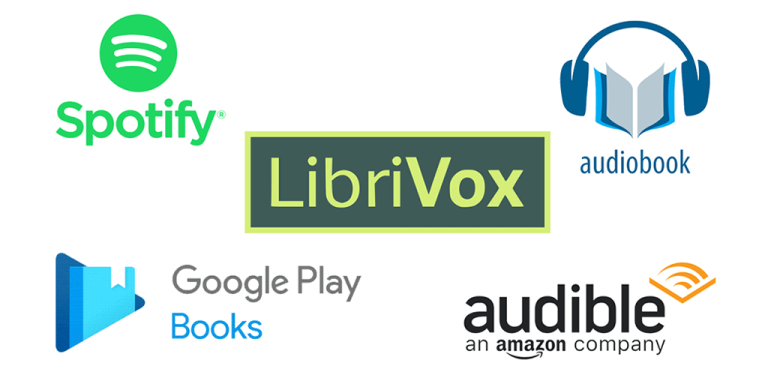What Is The Difference Between Spotify And Audible?
Hey there! Curious to know the difference between Spotify and Audible? Well, you’ve come to the right place! In this article, we’ll dive into the contrasting features of these two popular platforms and help you decide which one suits your preferences better. So, let’s get started!
When it comes to music streaming and audiobooks, Spotify and Audible are two heavyweights in the digital entertainment arena. While both platforms offer an extensive library of content, they cater to different types of audio experiences. Spotify, with its catchy slogan “Music for Everyone,” focuses primarily on music streaming. It boasts a vast collection of songs from various genres and artists, allowing you to create personalized playlists, discover new tracks through algorithmic recommendations, and enjoy a seamless listening experience. On the other hand, Audible, often referred to as the “Home of Audiobooks,” is dedicated to providing an immersive audiobook experience. From bestsellers to classics, Audible offers an extensive range of narrated books, allowing you to enjoy your favorite literature while on the go.
Now that you have a glimpse of what each platform offers, let’s dig deeper into the features and functionalities that set Spotify and Audible apart. Whether you’re a music enthusiast or an avid bookworm, we’ll help you make an informed decision about which platform suits your audio cravings. So, buckle up and let’s explore the wonderful world of Spotify and Audible!

What is the Difference Between Spotify and Audible?
Spotify and Audible are two popular platforms that offer different types of content and services for users. While both platforms provide entertainment and access to a wide range of audio content, there are several key differences between the two. Let’s explore the features and offerings of Spotify and Audible to understand their distinctions.
Spotify: The Music Streaming Giant
Spotify is a leading music streaming platform that allows users to access a vast library of songs, albums, and playlists. With Spotify, users can discover new music, create personalized playlists, and follow their favorite artists. The platform offers a free version supported by ads, as well as a premium subscription that provides an ad-free experience and additional features.
One of the main advantages of Spotify is its extensive music catalog. With millions of songs from various genres and artists, users can easily find and listen to their favorite tracks. Spotify also excels in its user-friendly interface, making it easy to navigate and discover new music based on personal preferences and curated playlists.
In addition to music, Spotify also offers podcasts, audiobooks, and other audio content. This diversification has expanded its appeal beyond music enthusiasts, attracting users who enjoy a broader range of audio entertainment. With the ability to create and share playlists, follow friends’ music recommendations, and explore new genres, Spotify provides a social aspect that enhances the overall user experience.
Features and Benefits of Spotify
Spotify offers several features and benefits that set it apart from other music streaming platforms. Here are some key highlights:
1. Personalized Recommendations: Spotify’s algorithm analyzes user listening habits and preferences to deliver personalized music recommendations. This feature helps users discover new artists and songs tailored to their tastes.
2. Collaborative Playlists: Users can create collaborative playlists and share them with friends, allowing for a collaborative music experience. This feature is ideal for parties, road trips, or simply sharing favorite songs with loved ones.
3. Offline Listening: Spotify Premium subscribers can download songs and playlists for offline listening. This feature is particularly useful for users who want to enjoy music during flights, commutes, or other situations without internet access.
4. Cross-Platform Compatibility: Spotify is available on various devices and platforms, including smartphones, tablets, computers, and smart speakers. Users can seamlessly switch between devices and continue listening to their favorite songs without interruption.
5. Podcasts and Audiobooks: In addition to music, Spotify offers a wide selection of podcasts and audiobooks. Users can explore various topics, from true crime to educational content, making Spotify a versatile platform for audio entertainment.
Audible: The Audiobook Destination
Unlike Spotify, Audible is primarily focused on audiobooks and spoken word content. It is the largest audiobook platform globally, offering a vast collection of audiobooks in different genres and languages. Audible allows users to purchase and download individual audiobooks or subscribe to a monthly membership plan for access to a curated selection of titles.
One of the standout features of Audible is its extensive library of audiobooks. From classic literature to contemporary bestsellers, Audible provides a wide range of options for book lovers. The platform also offers original content, exclusive titles, and performances by renowned narrators, enhancing the overall listening experience.
Audible’s user-friendly interface and intuitive features make it easy to navigate and customize the listening experience. Users can adjust the playback speed, set bookmarks, and even switch seamlessly between reading and listening with the Whispersync for Voice feature. This flexibility allows users to enjoy books in a way that suits their preferences and lifestyles.
Features and Benefits of Audible
Audible offers several features and benefits that make it a popular choice among audiobook enthusiasts. Let’s explore some of the notable features:
1. Vast Audiobook Collection: Audible boasts a vast library of audiobooks, including bestsellers, classics, and exclusive titles. Users can explore different genres and discover new authors and narrators.
2. Membership Benefits: Audible’s monthly membership plan provides users with credits that can be used to purchase audiobooks. Members also enjoy discounts on additional audiobook purchases and access to exclusive deals and promotions.
3. Whispersync for Voice: With Whispersync for Voice, users can seamlessly switch between reading an e-book and listening to the corresponding audiobook. This feature allows for a seamless reading experience across different formats.
4. Offline Listening: Audible allows users to download audiobooks for offline listening. This feature is beneficial for users who want to enjoy their favorite books while traveling or in areas with limited internet connectivity.
5. Audible Originals: Audible produces original content, including podcasts, audio dramas, and exclusive audiobook performances. These Audible Originals offer unique and engaging listening experiences for subscribers.
In summary, while both Spotify and Audible offer audio content, they cater to different needs and preferences. Spotify focuses primarily on music, with additional offerings such as podcasts, while Audible is dedicated to providing a vast collection of audiobooks. Whether you’re a music lover or an avid reader, both platforms offer unique features and benefits to enhance your audio entertainment experience.
Key Takeaways: What is the difference between Spotify and Audible?
- Spotify is a music streaming service, while Audible is an audiobook platform.
- On Spotify, you can listen to a wide range of music genres, while Audible offers a vast library of audiobooks.
- Spotify has a free version with ads, but you can also subscribe to premium for an ad-free experience. Audible requires a subscription to access its content.
- Spotify allows you to create playlists and discover new music, while Audible focuses on providing high-quality audiobook narrations.
- Both platforms have mobile apps, but Spotify is available in more countries compared to Audible.
Frequently Asked Questions
1. How do Spotify and Audible differ in terms of content?
Spotify and Audible offer different types of content to cater to different interests. Spotify primarily focuses on music streaming, offering a vast library of songs, albums, and playlists across various genres. On the other hand, Audible specializes in audiobooks, offering a wide range of titles across different categories, including fiction, non-fiction, self-help, and more.
While Spotify allows users to discover and stream music from different artists and genres, Audible provides a platform for users to listen to narrated books, allowing them to enjoy literature on the go. So, if you’re a music enthusiast, Spotify is your go-to platform, while if you’re more into books and storytelling, Audible is the perfect choice.
2. What are the subscription options for Spotify and Audible?
Spotify and Audible have different subscription models to suit the needs and preferences of their users. Spotify offers both free and premium subscriptions. The free version includes occasional ads and limited features, while the premium version removes ads, provides unlimited skips, and allows offline listening. Spotify also offers family and student plans at discounted rates.
On the other hand, Audible operates on a credit-based system. Users can purchase credits, which can be used to redeem audiobooks. Audible also offers a monthly membership plan called Audible Plus, which provides access to a selection of audiobooks and podcasts. Additionally, Audible offers a premium membership called Audible Premium Plus, which includes unlimited access to their entire library of audiobooks.
3. How do Spotify and Audible differ in terms of pricing?
When it comes to pricing, Spotify and Audible have different structures. Spotify offers a free version with limited features, while its premium subscription starts at $9.99 per month. Spotify also offers family and student plans at discounted rates. The pricing may vary depending on your country and the specific subscription plan you choose.
On the other hand, Audible operates on a credit-based system. Users can purchase credits, with prices ranging from $14.95 for a single credit to $229.50 for 24 credits. Each credit can be used to redeem an audiobook of your choice. Audible also offers monthly membership plans, with Audible Plus starting at $7.95 per month and Audible Premium Plus starting at $14.95 per month.
4. Can you use Spotify and Audible on different devices?
Both Spotify and Audible are available on a wide range of devices, allowing users to enjoy their content on different platforms. Spotify can be accessed through its website, desktop app, and mobile app, which are available for iOS and Android devices. It is also compatible with smart speakers, gaming consoles, and other connected devices.
Similarly, Audible can be accessed through its website, desktop app, and mobile app, available for iOS and Android devices. It is also compatible with Amazon Echo devices, allowing users to seamlessly switch between listening on their mobile devices and smart speakers. So, whether you prefer listening on your phone, computer, or smart speaker, both Spotify and Audible have you covered.
5. Are there any additional features that differentiate Spotify and Audible?
Spotify and Audible offer additional features that differentiate them from each other. With Spotify, users can create and share playlists, follow their favorite artists, discover new music through personalized recommendations, and enjoy curated playlists for different moods and occasions. Spotify also integrates with social media platforms, allowing users to share their music preferences with friends.
On the other hand, Audible offers features specifically designed for audiobook enthusiasts. Users can adjust the narration speed, set sleep timers, bookmark favorite sections, and switch between devices without losing their progress. Audible also offers exclusive original content and access to podcasts, providing a wider range of audio entertainment options.
Spotify Audiobooks: Now Listen to Audiobooks on Spotify: Cost and Compared with Audible
Final Summary: What Sets Spotify and Audible Apart?
When it comes to music streaming and audiobook platforms, Spotify and Audible are two big players in the game. While they both offer a wide range of content, there are some key differences that set them apart.
In conclusion, Spotify is primarily known for its vast music library, offering millions of songs from various genres. It allows users to create playlists, discover new music based on their preferences, and enjoy personalized recommendations. With its user-friendly interface and social features, Spotify creates a dynamic and engaging music streaming experience for its users. Additionally, Spotify offers a free version with ads, as well as a premium subscription that removes ads and unlocks additional features like offline listening.
On the other hand, Audible is a leading platform for audiobooks and spoken-word content. It provides a vast collection of audiobooks, including bestsellers, classics, and exclusive titles. Audible offers a seamless listening experience with its high-quality audio and user-friendly interface. One of the standout features of Audible is its membership program, which provides users with a credit each month to redeem for any audiobook of their choice. This subscription-based model allows users to enjoy their favorite books at a discounted price and access exclusive member benefits.
In summary, while Spotify excels in the realm of music streaming with its extensive library and personalized features, Audible stands out as a go-to platform for audiobook enthusiasts with its vast collection and membership perks. Whether you’re in the mood for music or craving a captivating story, both Spotify and Audible offer unique experiences catered to your preferences.






